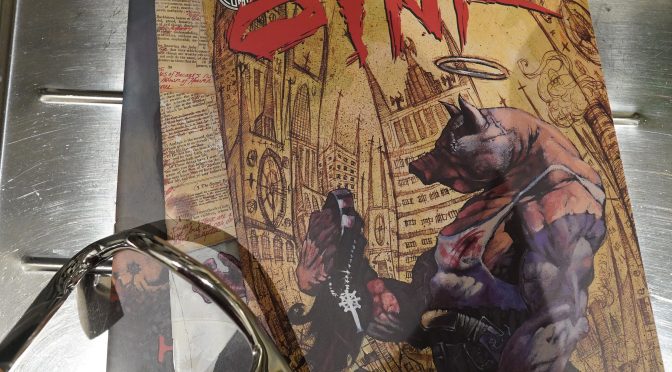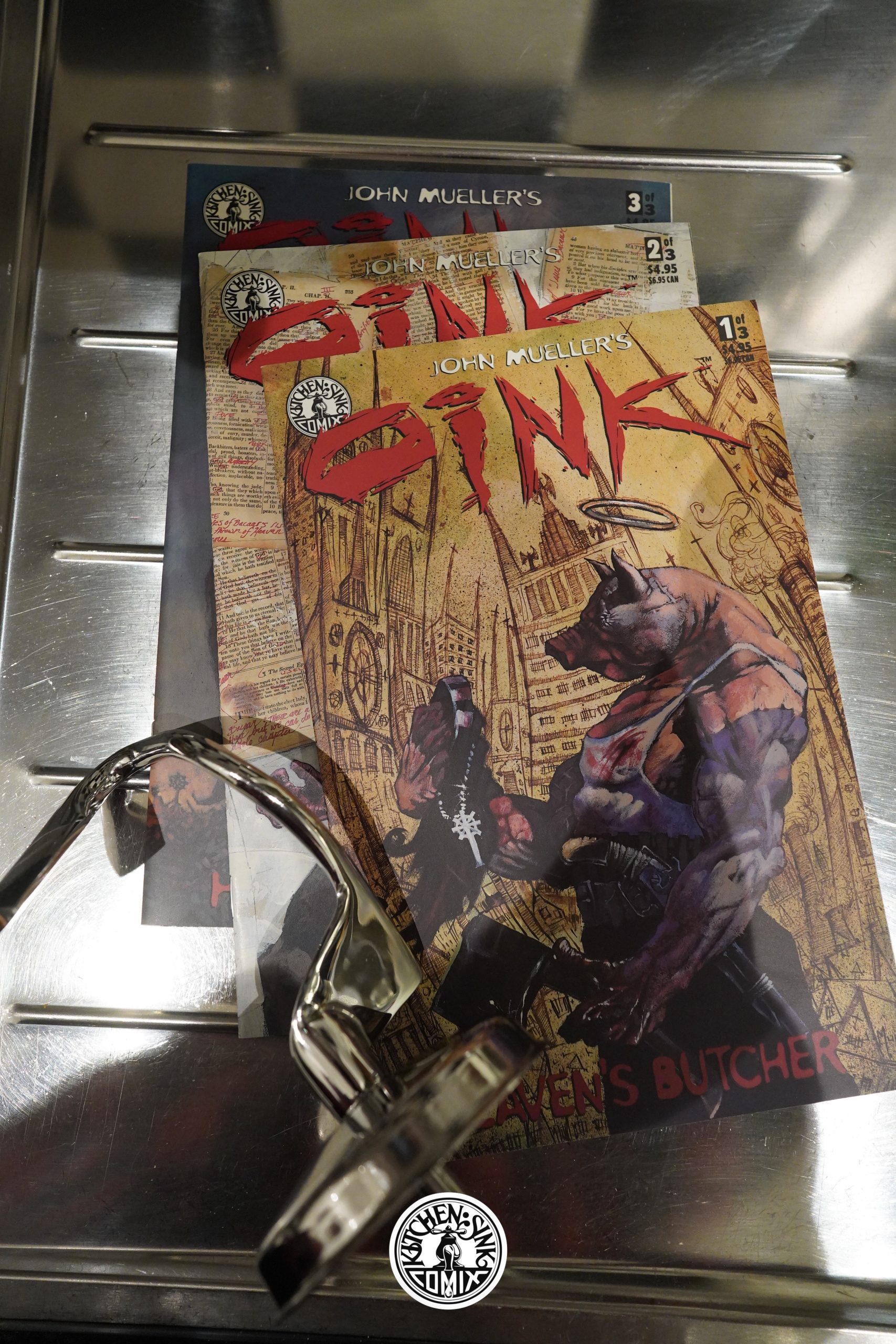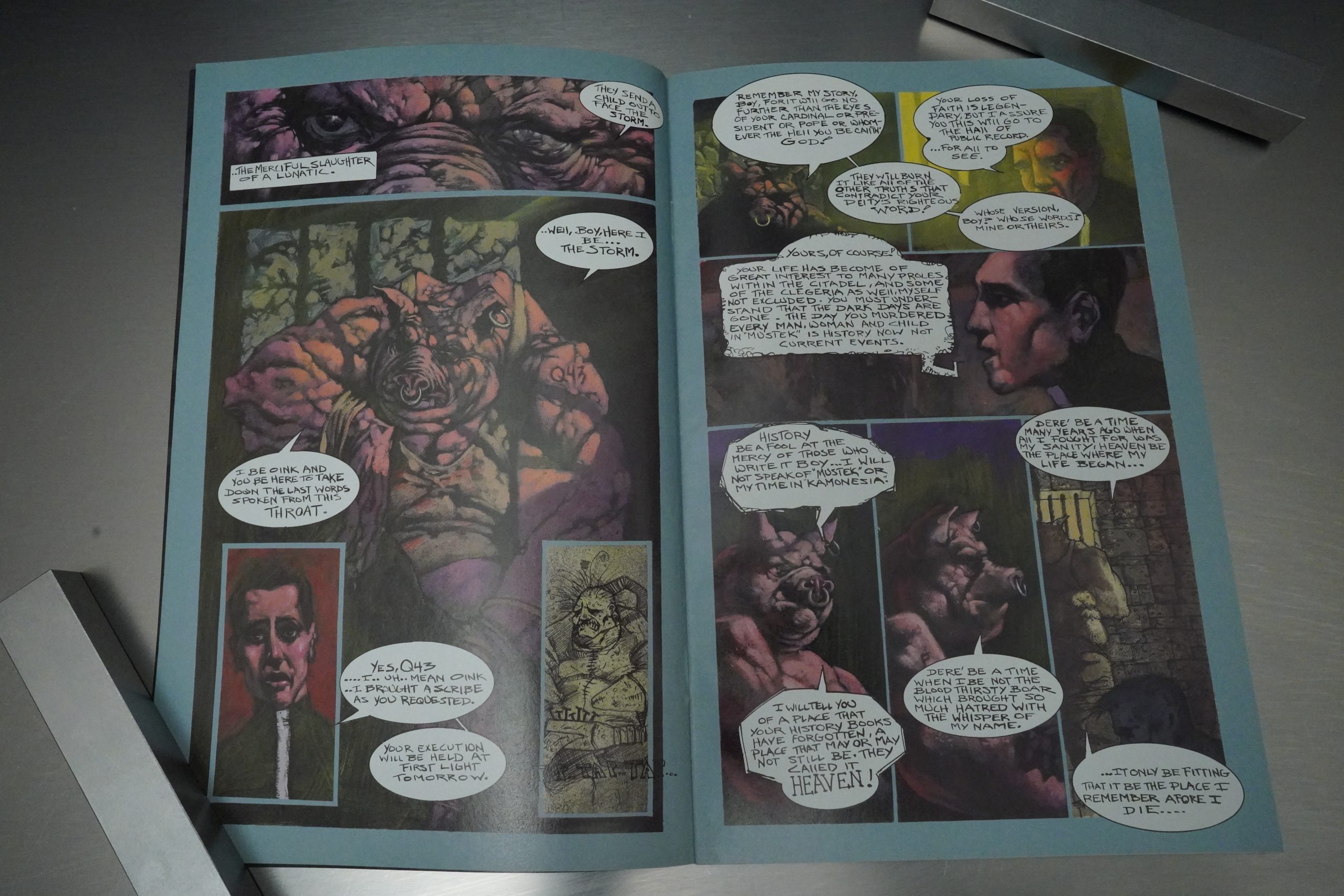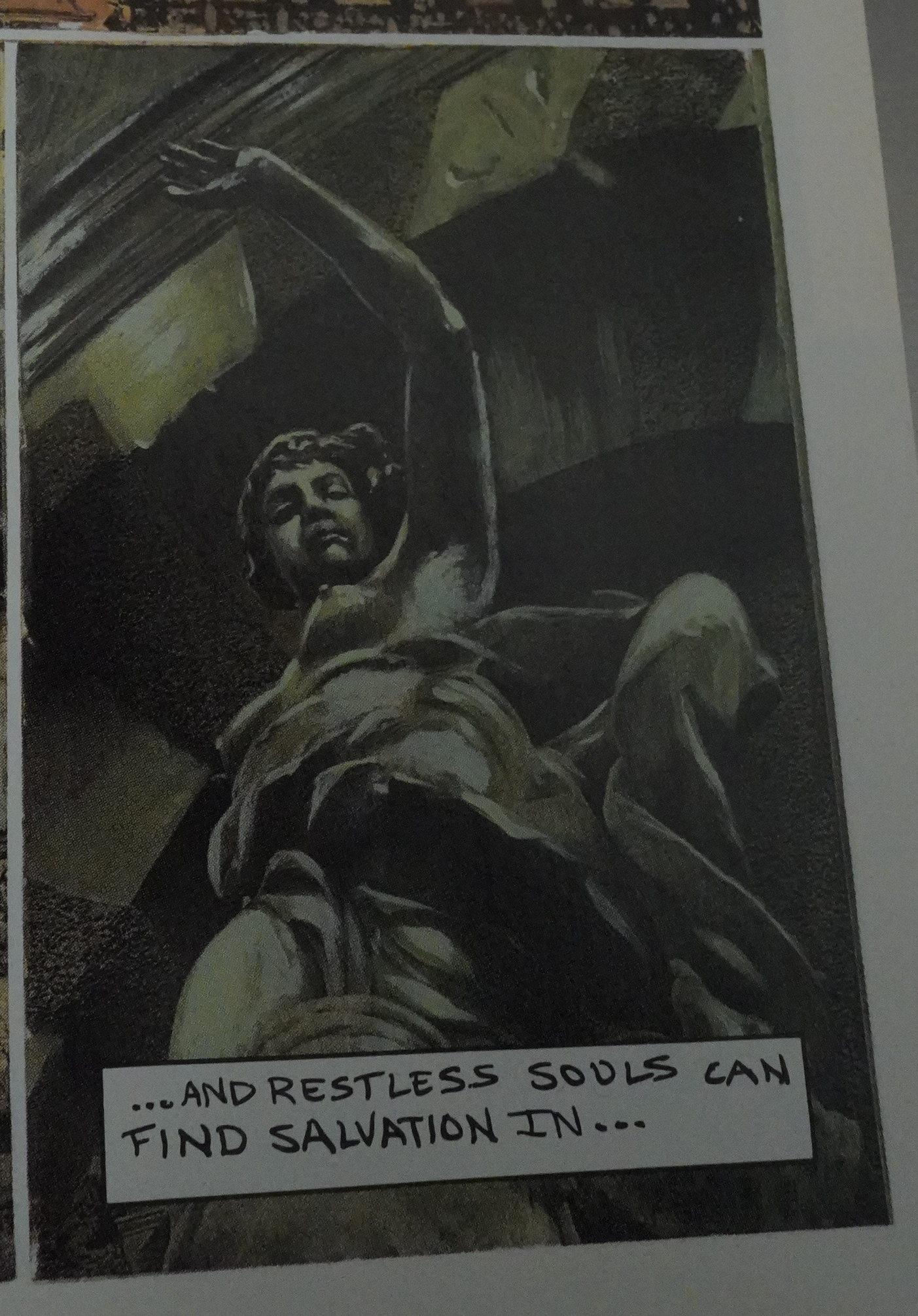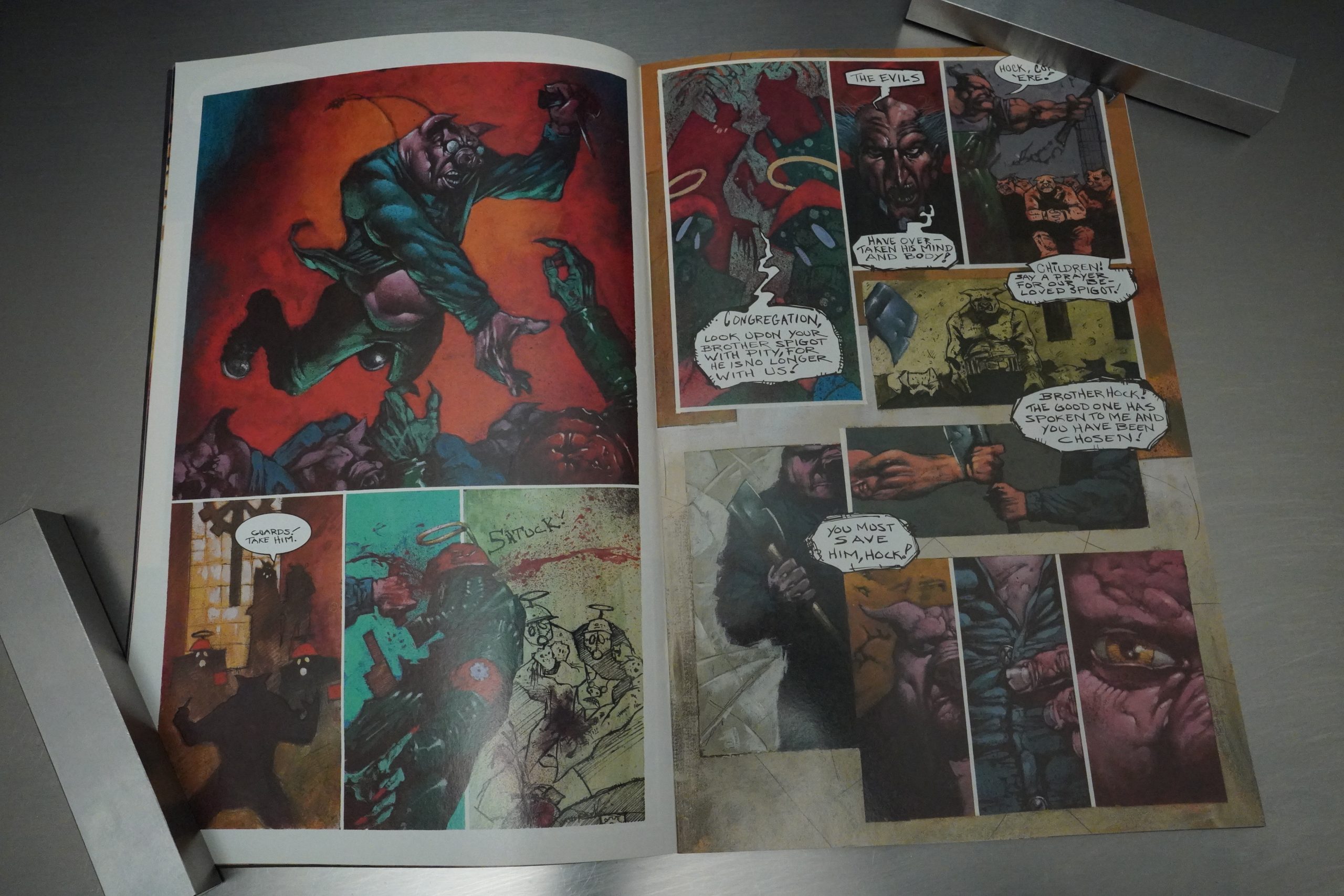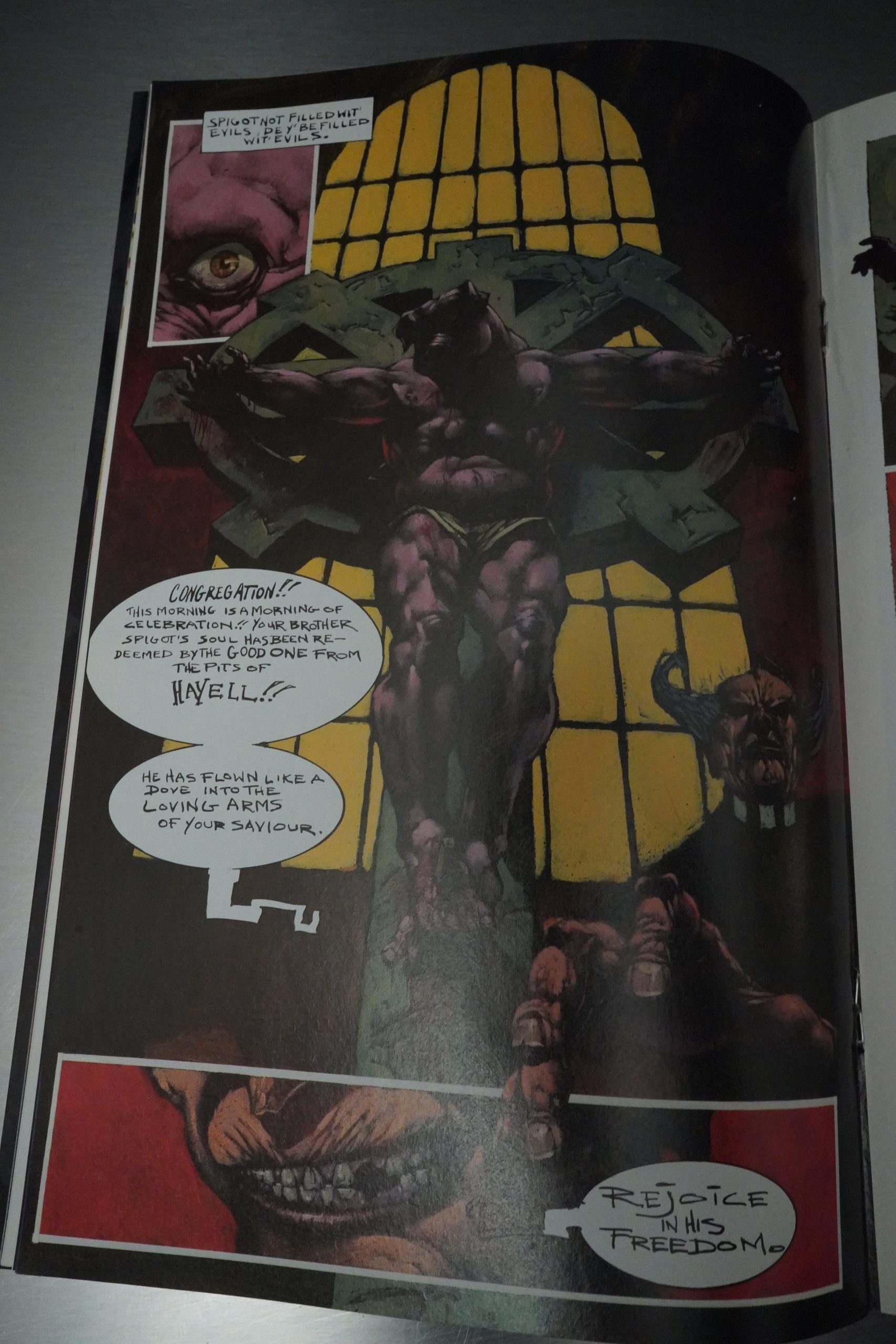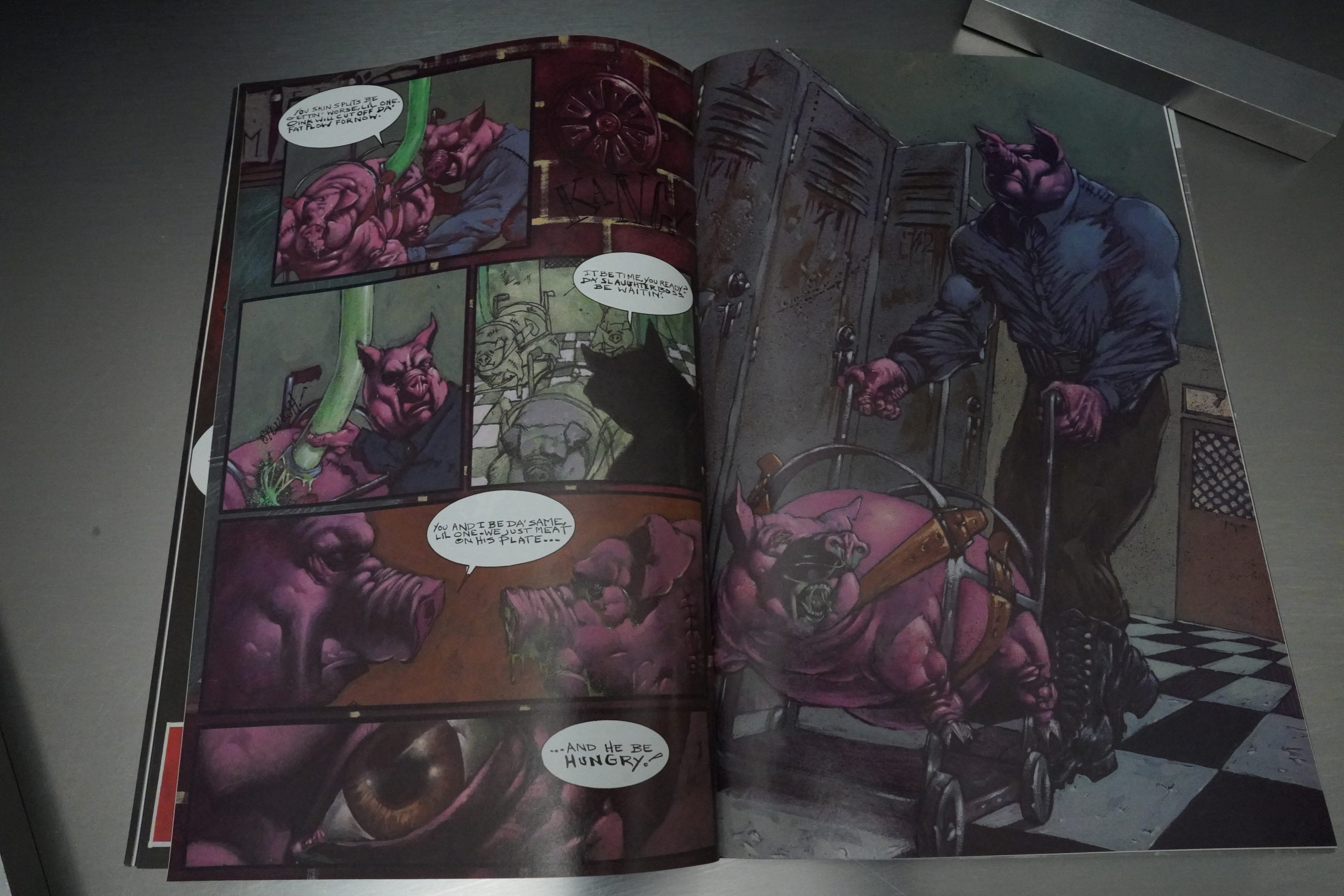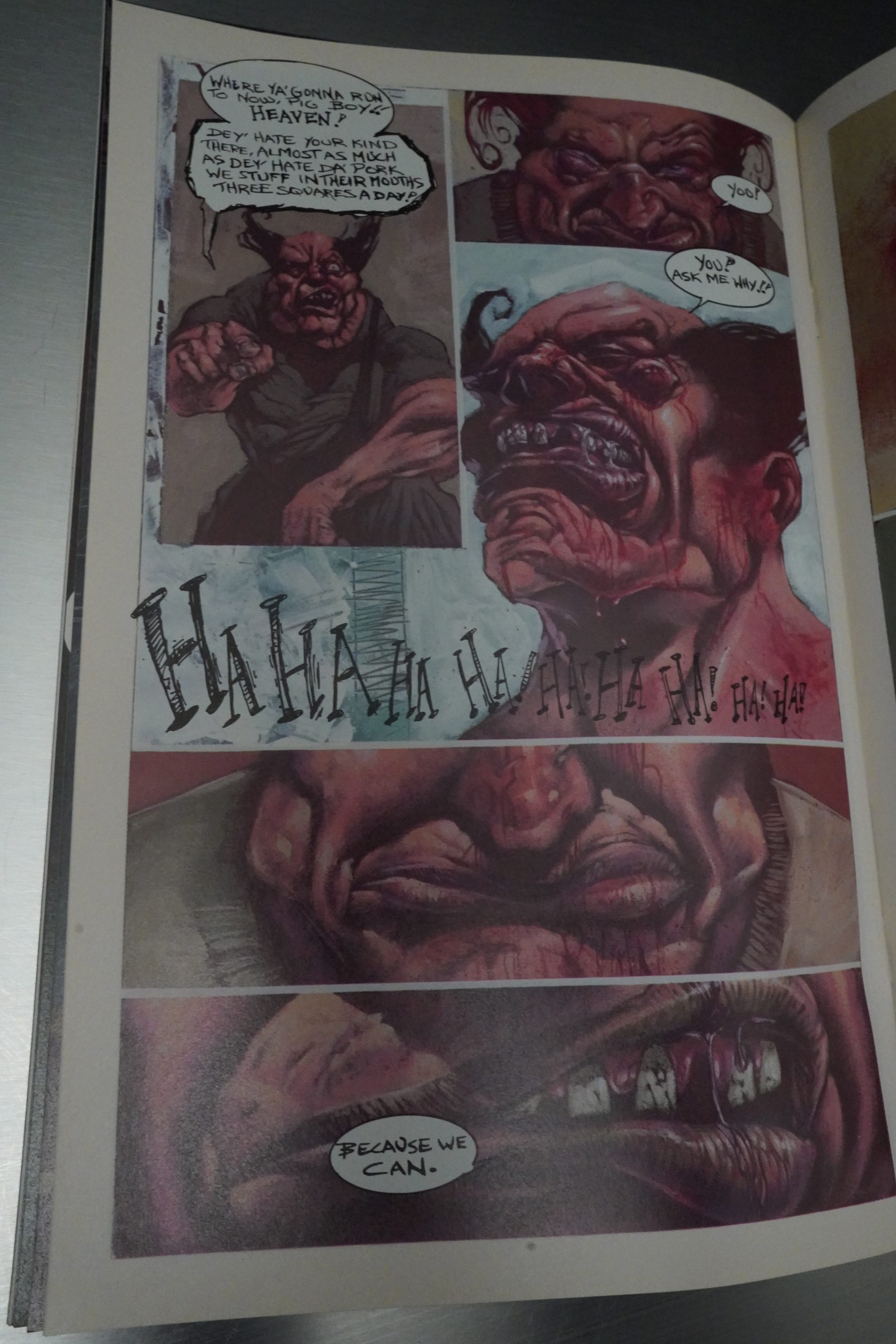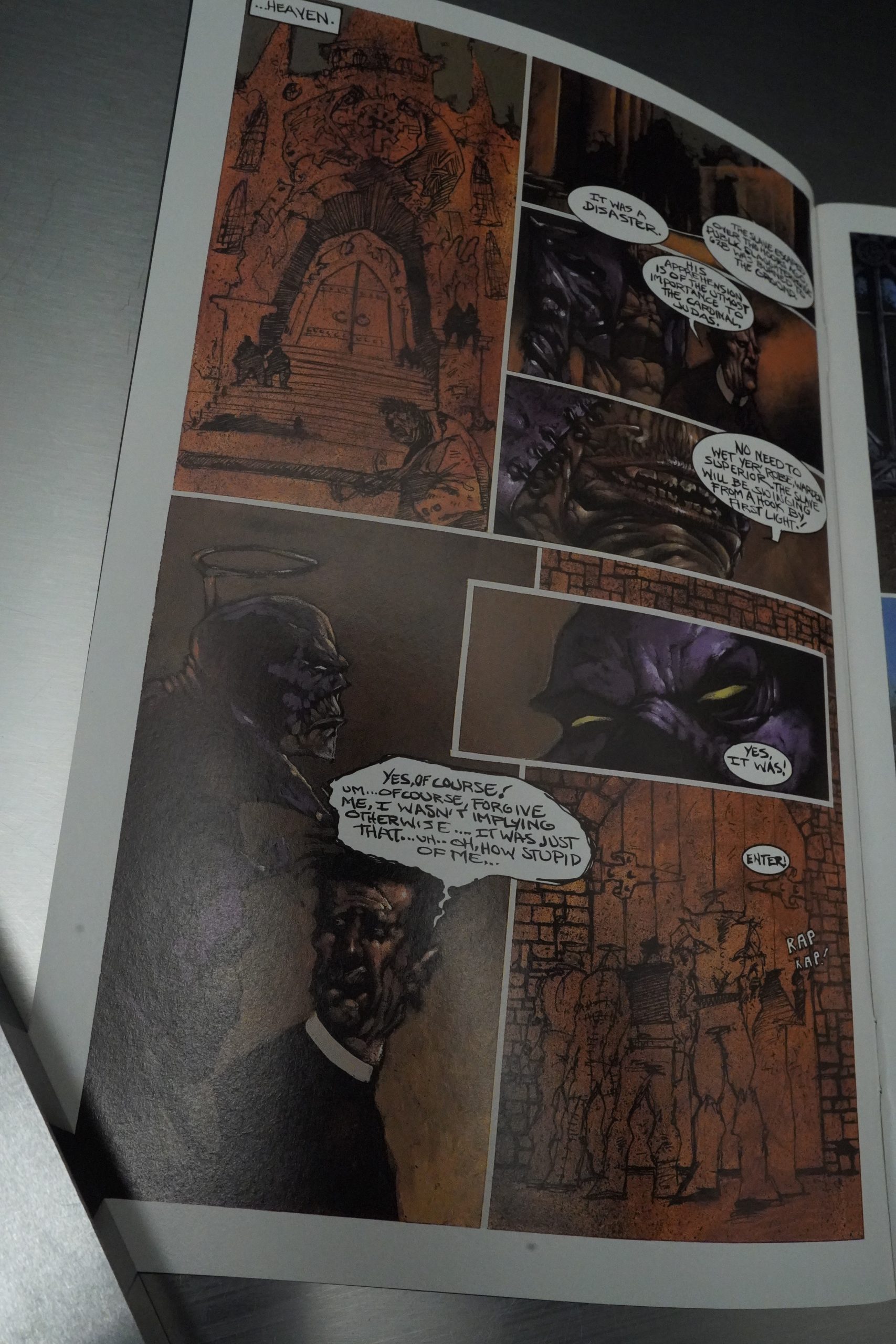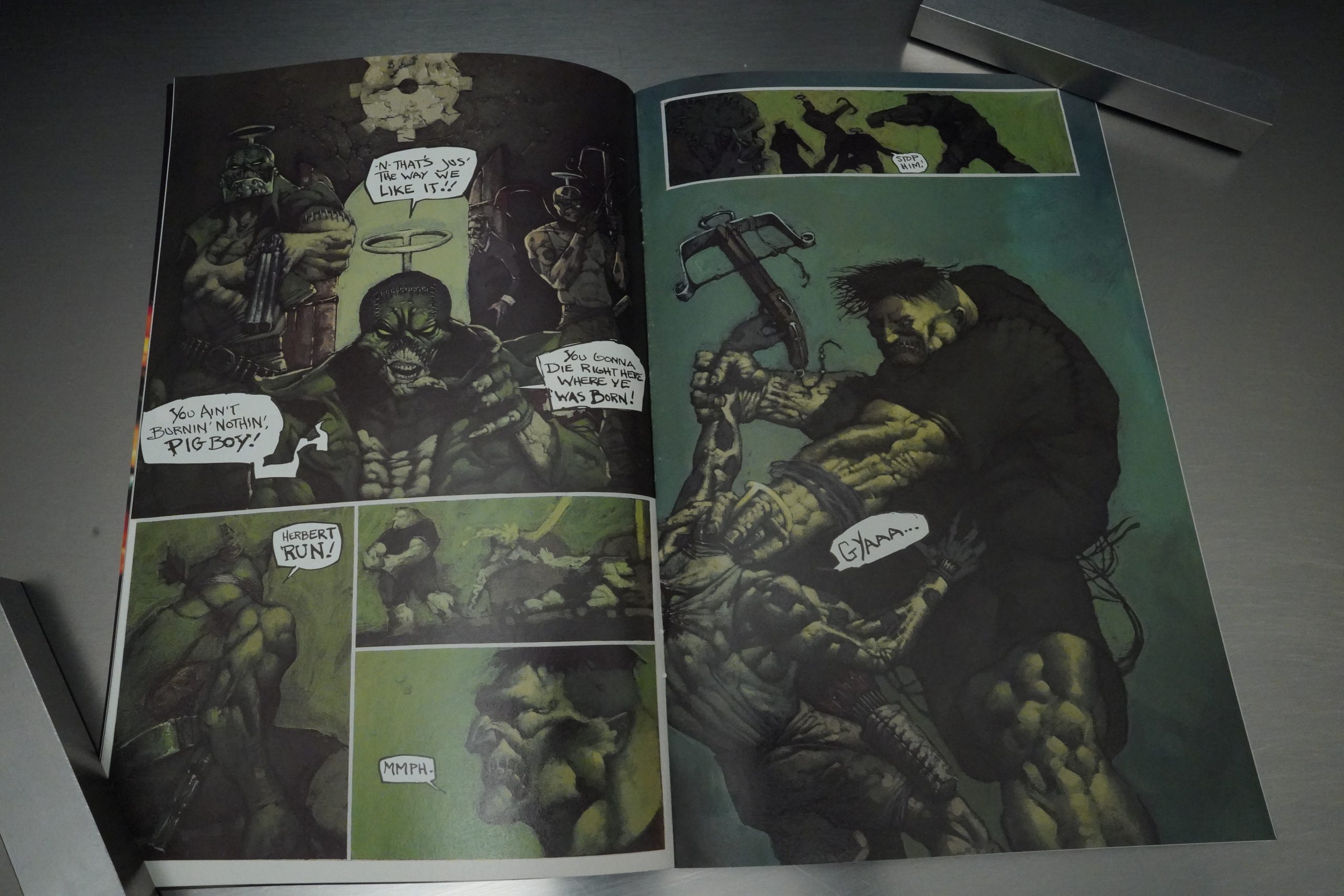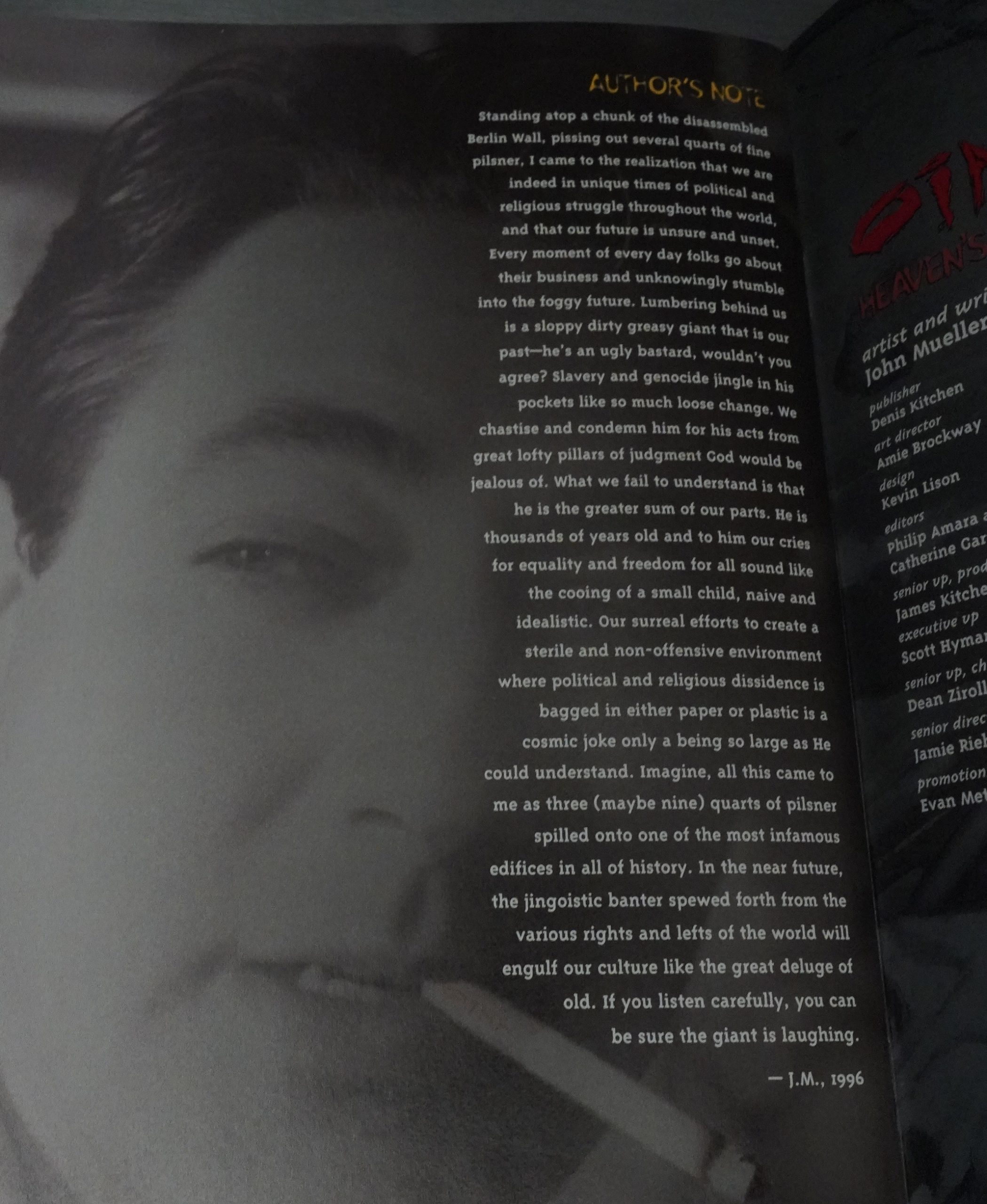Oink: Heaven’s Butcher (1995) #1-3 by John Mueller
I think this was Mueller’s first comic book. Looking at comics.org, he’d done covers for Swamp Thing for a while (or perhaps while doing this), and it shows.
I mean, I can see why he’d been picked to do Swamp Thing covers, but his storytelling is very choppy. And I’m guessing the artwork is somewhat photo referenced? But is fully painted? Perhaps in… er… acrylics? I don’t see much computer manipulation of the artwork, but this was 1995, and I guess it would be too early. But perhaps painted on top of pics? Some of it?
Not all, obviously. The rendering sometimes reminds me a bit of Corben, but the storytelling doesn’t at all. And the non-painted panels that appear as if random? Pretty cool. It’s just hard to say what’s happening a lot of the time. Which I guess adds to the mystery.
Sorry about all the reflections… I’m trying to angle the camera, but it’s very shiny paper.
Anyway, what I wanted to say is that I guess Mueller had a religious upbringing? You can tell by the subtle subtleties in the subtle subtleness.
But that’s pretty horrifying.
The story is basically about these guys breeding pigs both for eatin’ and also more human-like beings for workin’, and sometimes both! So we’re all, of course, curious about what’s behind all this evilness. How on earth does this make sense from an economic point of view? Or a logistical one? You’d expect people to get pretty miffed after a while if you’re snacking on them, too, right? So it just seems unnecessarily brittle, as evil setups go.
Mueller has the explanation why they’re doing this evilness, though: “Because we can”. Okidokey.
It’s often just next to impossible to say what’s going on, or what order you’re supposed to read the panels or the speech bubbles. How many people are participating in the conversation above? Who is saying “yes, it was!” in response to what statement from which character?
It brings us back to that age-old question: What does an editor do? Not work on this comic book.
But I mean, it looks pretty neat.
I wonder whether this book originated back in the Tundra days? It shares an aesthetic with many things published back then (i.e., “heavy metal fan that’s learned how to paint”), and is not like anything that Kitchen Sink would have published back in the day… But it’s a bit late for that, I guess.
… OK, skimming what I’ve written above, I think this blog post came out meaner than I had meant: I quite like this book. It had a visceral quality that’s quite appealing, and it made me slow down reading a lot — I don’t know whether that was on purpose, or whether it was just due to the wonkiness of the dialogue. But it’s fine. I can easily see this having rabid fans that loves it.
Cool author pic, dude. And he was a bit early with his prediction, I guess, but I guess he was pretty much on point with his predictions.
I was unable to find any contemporaneous reviews of this.
That’s when things get really deep.
I can’t claim to read the mind of John Mueller and know exactly what kind of messages he was hoping to convey with this striking graphic novel, but I know that I thought long and hard after reading it about blind faith, the abuse of power and authority, the conditioning of young minds to best serve the interests of their governors, and what might happen if the human race as a whole lost all compassion for other beings. I told you — deep stuff.
Kind of half-baked and not fully developed. This reminds me of something a juvenile delinquent might have written during study hall (or detention). Not sure where this got its “classic” status from…
Seems like most people like it:
At its core, it’s a very entertaining story and well crafted from start to finish. Very well constructed in every way, I found it extremely engaging despite the harsh and dark nature of it. I did not know the work of John Mueller prior to this series but this made me want to seek out more of his works.
Oink is evidence that Mueller is a gifted artist and a poor storyteller. Though the reader will constantly want the story of the titular revolutionary pig-person to be compelling, and though some characters are likable enough to elicit a few satisfying emotional turns in the story, the world itself is cobbled together from several half-baked ideas, all of which would have needed to be fully baked to make this story satisfying.
Dark Horse released a collected edition some years back. And Mueller has kept up the pig-related comics with Jeremiah Hamm.
Oh! Misread that. It’s Jeremiah Harm.
This is the one hundred and ninety-third post in the Entire Kitchen Sink blog series.
